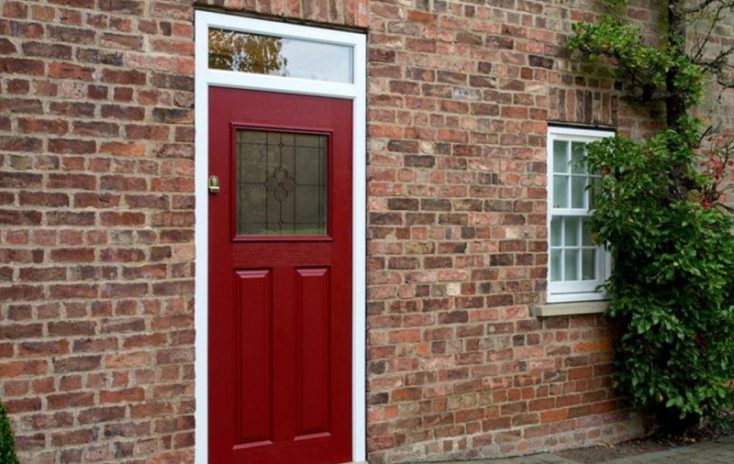On 6th August 2020, the UK Government announced drastic changes to the current planning permission system.
The changes, outlined in a paper entitled ‘Planning for the Future’, aim to spark a planning ‘revolution’ which Prime Minister Boris Johnson has named ‘unlike any we have seen since the Second World War.’
But, what are these reforms and what makes them so radical?
In this article, we take a closer look at the planned changes to the planning system in England.
It’s worth noting that these changes are currently in consultation until 29th October and the plans are subject to change until formally put in place.
Planning Permission Changes
‘Automatic’ Permission for designated areas
The Government is to force the hand of local authorities, with local authorities being ordered to delegate land for development.
The designated land will then be exempt from the traditional full planning permission process.
Land will be divided into three categories: ‘for growth, for renewal and for protection.’
Areas categories for growth will be automatically granted planning permission, with councils unable to block building developments. New homes, hospitals and schools will fall within this category.
Councils are also forced to permit planning permission for land earmarked for renewal.
However, not all building developments are given the green light. Areas of natural beauty and green belt areas are protected from new developments.
Fast-track for ‘Beautiful’ Developments
‘Beautiful’ developments will be pushed to the front of the queue with the introduction of the Government’s ‘fast-track for beauty’ scheme.
Under the new scheme, automatic permission for ‘proposals for high quality developments where they reflect local character and preferences’ will be permitted.
The ‘fast-track for beauty’ programme is the successor of the ‘Building Better, Building Beautiful’ commission, with developments that follow local design guidelines would be granted guaranteed quicker planning permission.
Updated Infrastructure Levy
Proposals to abolish the Section 106 agreement has been announced by the Government.
Section 106 is a written agreement between developers and local authorities to ensure development schemes are more acceptable.
The law will be replaced by an updated version of the community infrastructure levy that is currently in place.
As it stands, a flat-fixed charge is imposed subject to the floor space of a development, which is paid once a building development starts.
However, under the planning permission changes, this levy could be paid based on the final value of a build once it is fully occupied. Sanctions will be enforced on developers attempting to prevent occupation to avoid the charge.
It is argued that the new non-negotiable levy addresses the downfalls of Section 106, with large developers exploring legal loopholes to avoid accountability in regards to their side of the agreement.
Affordable Homes Discount
The planning permission changes allows local authorities to borrow money against their income from their infrastructure levy in order to fund building developments/
Previously, revenue from infrastructure levies couldn’t be invested in affordable housing. The planning permission changes proposed offers developers a discount on the levy if they build affordable housing.
What do the Planning System changes mean for your customers?
Now you have more insight into some of the planning permission changes proposed by the Government, it is time to look at the impact these reforms could have on your customers and how this benefits your business.
Homeowners building upwards
Families are growing larger and larger and so is the need for extra living space.
The new planning permission changes takes this into account. That is why the reforms allows homeowners to add an additional two storeys onto their properties through a fast-track process.
The impact on neighbours and the appearance of the extension is required to be taken into consideration.
This is great news for your business.
With the process of adding additional floors being made easier for your customers, the need for a high-quality installer of windows and doors is greater.
In comes your business.
With homeowners being able to build more storeys on their home, there’s potentially an increased demand for new windows and doors to bring light into those extra spaces.
Looking more long-term, properties may be fitted out with more windows, meaning when it comes time for replacement windows, the average order value could begin to increase.
Automatic Permission for Home Extensions
Not only do the planning permission changes make it easier for your customers to extend their homes upwards but they make it easier for your customer to extend their homes outwards also.
Under the reforms, Councils are required to make it simpler for homeowners to obtain planning permission when intending to add extensions to their homes. In certain cases, homeowners are awarded automatic planning permission to do so.
The ease in which homeowners are able to be granted planning permission results in quicker decision making and less paperwork to be done thus increasing the demand for extensions.
What do extensions need? Windows and doors.
The higher demand for extensions, the greater the need for an installer of windows and doors, increasing your market demand.
And for those of you serving the trade, builders of extensions are likely to be on the lookout for more windows and doors too.
Outside of windows and doors, a simpler planning system could lead to an increase in homeowners opening up to adding conservatories and orangeries to their homes, therefore offering a well-rounded range of products to meet customer demand is essential.
Meet that demand with quality
Despite the new planning permission changes promoting building development growth and increasing business for installation businesses, the changes still have their criticisms.
Critics fear the reformed planning permissions may lead to builds being rushed and built to a lower standard.
Therefore, the need for quality materials such as windows and doors is greater than ever.
At TruFrame, we are focused on delivering excellence through our products, supplying the best quality frames, coupled with fast turnaround times, and being made in the UK.
With exquisite attention to detail, our frames are hand-finished to perfection. To provide our customers with the most innovative products, we invest heavily in research, development, latest equipment, and offering substantial marketing support. Why compromise on quality? See our full range of windows and uPVC and composite doors here.
Looking for help on how to advise your customers on when planning permission for windows is needed? Our guide to window planning permission can help.



